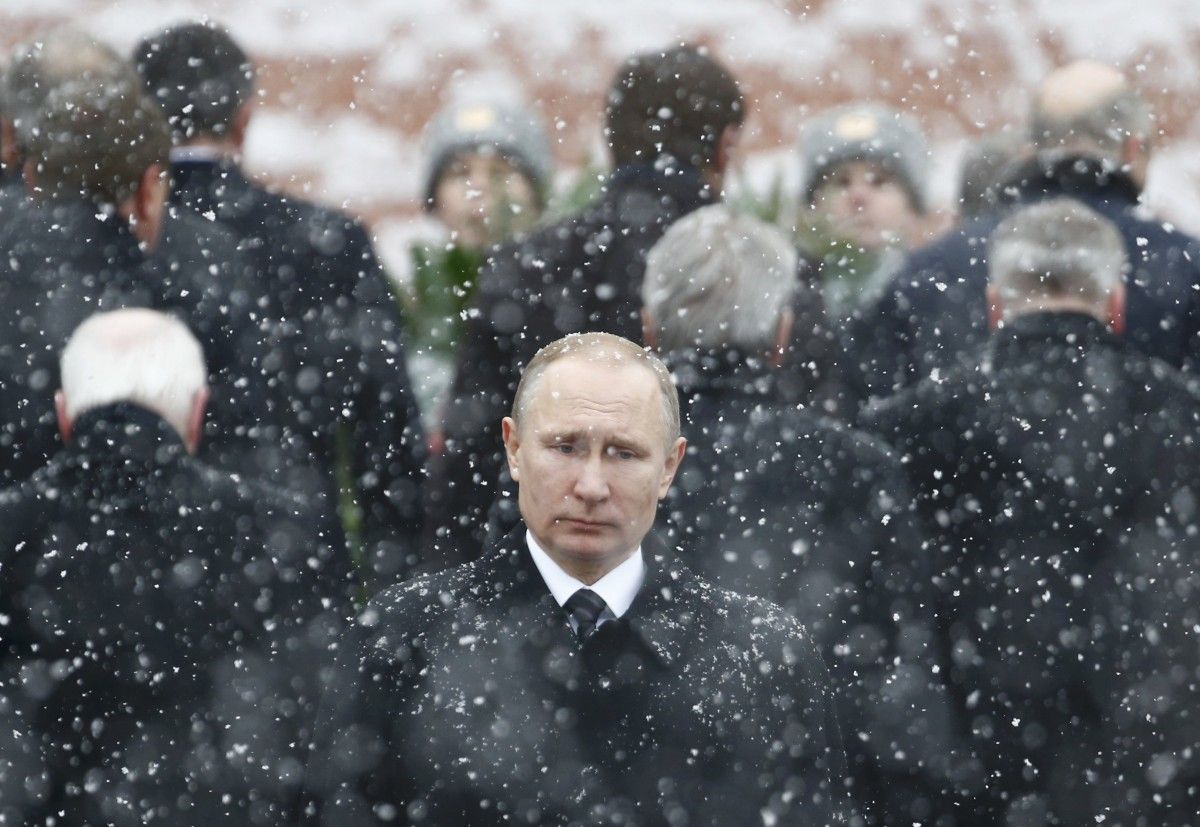
The consensus view in Moscow was that Ukraine was effectively defenseless and at Kremlin’s mercy while many of the bolder voices in Russia began speaking of celebrating the traditional May holidays in Kyiv itself, Dickinson wrote for the Atlantic Council.
Ukraine was still reeling from months of anti-government protests that culminated in the flight of President Viktor Yanukovych. The interim Ukrainian government lacked constitutional legitimacy and was in no position to risk a military confrontation with the mighty Russian Federation. “A clear window of opportunity had opened for Moscow to reassert itself in mainland Ukraine,” the author writes.
Encouraged by the stunning success of his initial gamble in Crimea, President Vladimir Putin decided to raise the stakes and take arguably the biggest risk of his entire career.
For a few weeks, Ukraine’s chances of survival as an independent state seemed to be rapidly receding.
“However, the much-feared Russian march to the Dnipro never materialized,” the article reads. Instead, Russian uprisings were stifled across southeast Ukraine, and the Kremlin found itself restricted to a small bridgehead within the boundaries of Donetsk and Luhansk regions.
Three years on, they are still there, stuck in a quagmire of their own making.
The reason why Putin’s ambitious plans for a new empire in mainland Ukraine fell so dramatically short of expectations was because Russian planners “underestimated Ukraine’s capacity to fight back.”
Read alsoTillerson: Donbas conflict in Ukraine to remain obstacle in U.S.-Russia relationsUkraine had only 6,000 combat-ready troops available in spring 2014. This was a ridiculously threadbare force that was incapable of protecting the country’s borders, never mind defending its towns and cities.
“What Moscow failed to anticipate was the wave of patriotic emotion that surged across Ukraine in the wake of Russia’s hybrid assault,” the author wrote. “Thousands of Ukrainians took up arms in the spring of 2014, forming volunteer battalions that bolstered the country’s paper-thin defenses and stopped the Russian advance in its tracks. Behind them stood an army of civilian volunteers who provided improvised logistical support in the form of everything from food and uniforms to ammunition.”
“This military miracle saved Ukraine and left the Kremlin in its current predicament,” reads the article.
It is hardly surprising as, since the collapse of the Soviet Union, the Kremlin’s Ukraine policy had been driven by a toxic and self-defeating blend of wishful thinking and colonial condescension. This approach became increasingly entrenched during Putin’s reign; he made no secret of his desire to reassert Russian hegemony throughout the former Soviet Empire.
Read alsoGen. Staff planned operation against "little green men" during Crimea seizure“Putin’s hybrid attack was supposed to end what many in Moscow continue to see as the aberration of Ukrainian independence,” the author concludes. “Instead, it has cemented Ukraine’s place on the European map after centuries in Russia’s shadow.”

